
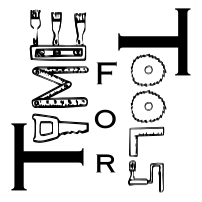

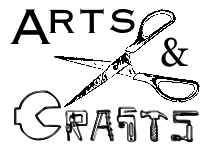


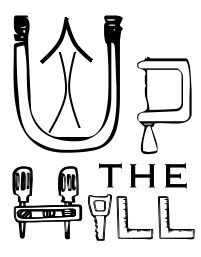



| Next Post - Previous Post List View
| |
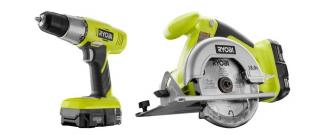 | 5/29/2014 9:19:02 PM Tool Review: Ryobi One+ Overview |
If you had a chance to see my Tool Time post, you probably noticed that I have been upgrading and expanding my "Mobile Workshop" with relative lightning speed. And at this point, it is high time to start reviewing the tools in my ever-expanding collection. So instead of jumping in with a particular tool, I thought it would be a good idea to first hit an over-view of the type of tools I used to have and a little more information on why I chose to go with Ryobi One+ for the majority of my future tools. Quick break down if you want to skip this post:
And for those of you who would like some more in-depth: A brief history of my history with tools... For a very long time my tools consisted of a 15 year old jig saw handed down from my parents, a collection of wrenches, sockets, and screwdrivers from assorted terrible quality tool sets that car dealerships giveaway, and a circular saw that I felt a little bit uncomfortable even standing next to. (Lets face it, my 5ft height and scrawny little arms could barely hold on to the circular saw when it bucked or bound in wood.) Then my parents gave me a little 9 volt cordless drill about the same time I started living on my own. The world of difference that variable-speed and cordless freedom imparted gave me a new look on tools. When it died and I upgraded to a 12 volt, I thought I had gone to heaven, but I will just say that if you don't have a cordless drill yet... go ahead and spring for the 18 volt and be done with it. The world changes from loosening and tightening screws and drilling a few holes to the ability to really build something... several somethings. And even if you only need one for a few around-the-house repairs, the power is there to do something bigger, and even tiny house repairs sometimes need that extra power. So for the longest time I built a LOT of stuff with a jig saw, a little palm sander, and a 12 volt cordless drill. Stuff like an industrial strength porch swing out of 2x10's. I killed two cheap jig saws cutting through wood too thick for them over the years, and got my hair wound up in the cordless drill more than once. Hair ties people! Never DIY without them. Over the years I have tried other tools but usually only the cheapest, and often they worked well for very light use, but failed after a heavy use project. For example, the super-cheap roto-zip knock-off failed the second time I used it for cutting wood, but it would have lasted years if I only cut drywall with it. And the cheap $35 drill press I bought for drilling holes in dowels for some custom curtain rods still works perfectly because I don't use it very hard or very often. And then there was the cheap version of the multi-tool that lasted almost a year and several big projects and remodeling a bathroom before it died a horrible sparks-flying death. So while it can be hard to judge on a tool you have never used before, I think it really is a good idea to try to match the quality (and price) of the tool to how much you will use it... and even more so... how much a pain in the arse it will be if it fails in the middle of a project. And through it all, every couple of years my cordless drill battery would die and I would purchase the cheapest new drill available to replace it. Finally a few years ago I purchased a set of cordless tools, and I guess I got what I paid for. The miniaturized circular saw could not cut more than one board without draining the battery completely, the jig saw was worse, and the batteries died their final death before I even tried out the saws-all. So I went back to purchasing drills as my only cordless tools, with one change... Two of them at a time. Why I never thought of it before still escapes me, but two drills with two batteries means you can drill pilot holes and drive screws without changing bits, and two batteries means that when one starts running out you can pull the battery and use the other drill while the first one charges up. However, I was still purchasing the cheapest 18 volt drills that I could find, and the batteries quit charging after just over a year... always within a few days of each-other and inevitably in the very middle of my biggest project for the year. Worse was the fact that the cheap drill manufacturers change battery styles just about every year, so that I could not buy another battery or two. I would have to buy two new drills. Why do the batteries die? Besides long hard use slowly causing a battery to be diminished in capacity and ability to hold a charge, the biggest reason that rechargeable batteries die long before their time is that battery chargers in most cheap rechargeable items are not smart and "cook" the battery if it is left on the charger too long. So this is why the instructions often say to charge the battery for X number of hours and then take it off the charger. Of course the obvious problem with this is that ni-cad and other older battery styles quickly loose charge when sitting idle so you don't have a good charge when you start your next project, and the more obvious problem of remembering to take the battery off the charger after X number of hours... Something I evidently forget to do in the middle of my biggest projects. However, the remedy is going to cost. First, a smart charger usually only comes with higher cost tools, but then you can leave your battery right on the charger and it is topped-off when you are ready to start a project. Second... lithium batteries hold a charge a lot longer when being stored, so even if you forget to put your battery on the charger, it will usually still have a good charge when you use it next. However, lithium batteries cost an average of twice as much or more than older styles. So knowing that, I debated every time I needed to purchase new drills as to whether to spring for the good stuff, or go another year buying the cheap ones. And finally nearing Christmas of 2013, I decided I could no longer deal with drills that failed in the exact middle of a big project every year. Debates and Dilemmas... While I had done some research into the types and costs of better tools almost every time I needed to get new drills, this was the first time I really looked into tools with the potential of purchasing them. And with my first glance, I was totally overwhelmed with the possibilities. Three factors came in to play as I weeded out the ranks: Cost. I was ready to shell out a little money for better drills, but I am still what I would call a "hobby user"... Okay, a "hobby user" with the inclination to remodel a kitchen or bathroom now and then... That's a hobby, right? Regardless, I still can't justify the money for a Makita, Milwaukee, Dewalt, or similar high-end tools. The Ryobi One+ tools came in a lower price tag on average and while not reviewed to be quite the same quality as the more expensive brands, they had great reviews over-all. Even more impressive was the fact that my brother-in-law-construction-guy gave his nod of approval. Of course, he also said he would recommend some of the more expensive types for someone who worked in construction for a living, but for any general use, the Ryobi would be great, and he even had some of the Ryobi One+ in his tools. Versatility. Again this is a category that Ryobi excelled at. With dozens and dozens of tools all using the same battery style, it was ready-made for someone who was looking to get couple drills now and possibly expand their set in the future. Many types and price ranges offer sets that run off the same battery, but Ryobi had everything from drills and saws to lawn edgers and even a chain-saw, and you could purchase one or two tools at a time instead of a full set in one budget crushing blow. Smart Charger and Good Batteries. The Ryobi One+ was one of the cheapest brands that came with a good quality smart charger as well as lithium batteries that had great reviews. And the thing that finally won me over and drop-kicked all others out of the water was the backwards and forwards compatibility of it's batteries. I can get a tool that is several years old and it will run on my batteries from my new tools (vastly improving the chances of getting good used tools for a song from craigslist), and they claim that years from now I can get a new tool and it will still use the batteries I get today. It is like they heard me griping about the poor state of cordless tools, fixed everything, and then forgot to tell me about it. Conclusion... While you might want to look at higher price-point tool set if you have a bigger budget or will be using your tools everyday in construction work, or you might want to go with that $25 cordless drill if you will almost never use your tools and don't mind needing to re-charge the battery before you can start your project... for general light use up to some pretty heavy use, the Ryobi One+ fit my needs and my budget and I would recommend it to anyone... even those people who don't think they need a good drill or two. Trust me... you do. Note... Ryobi did not sponsor this post in any way or pay me to write a favorable review... Of course I would not say no to some tools if Ryobi wanted to send me gifts, but around here you will always get my real and honest opinion regardless of any donations to my tool addiction. | |
|
POST LINKS FORWARD TO: 6/3/2014 8:26:39 PM - Tool Review: Drills, A Tale Of Four Drills, and The Ryobi One+ Compact Drill | |
|
POST LINKS BACK TO: 4/28/2014 8:07:00 PM - Tool Time | |
Next Post - Previous Post List View | |
Add Your Comment...


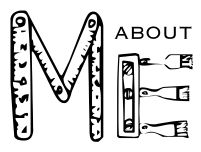


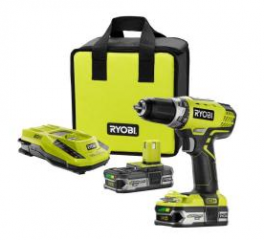
Congratulations!! and we are so happy you now have the right tools for the right job or at least closer to your Goal. As a Tool Addictive Person you will never have all you want so maybe you will have what you need or .................